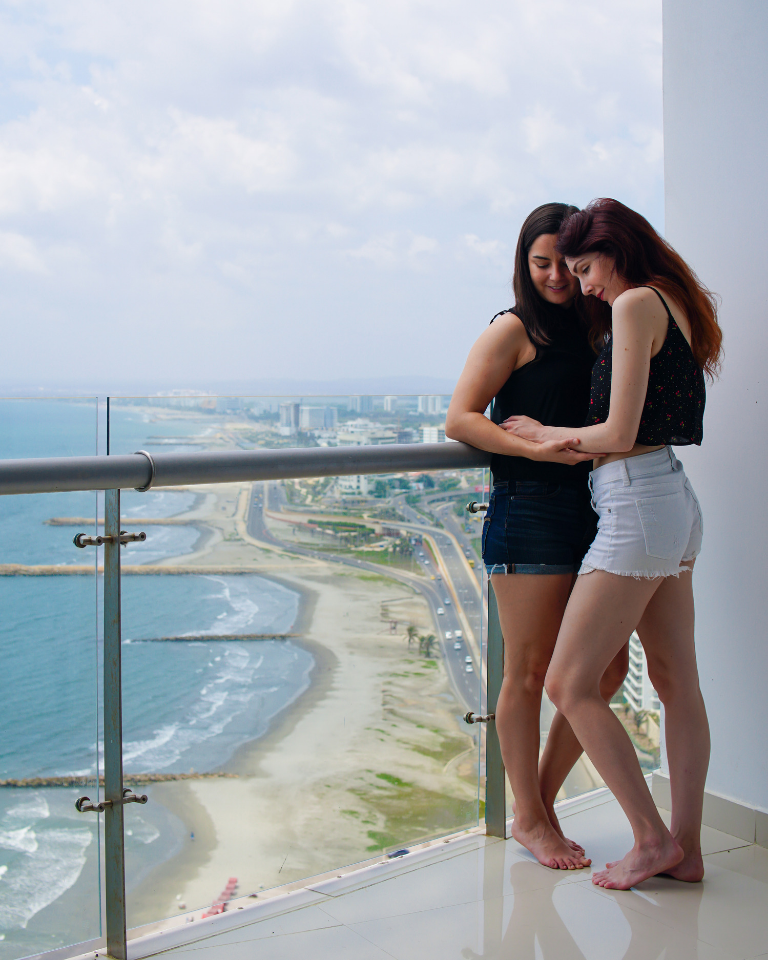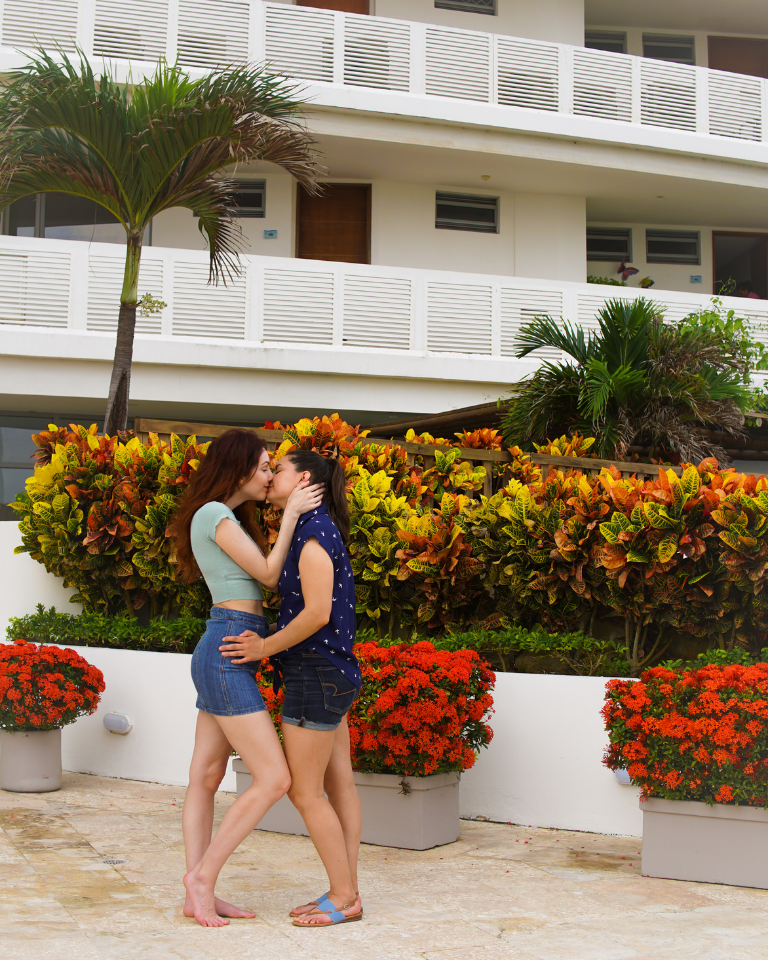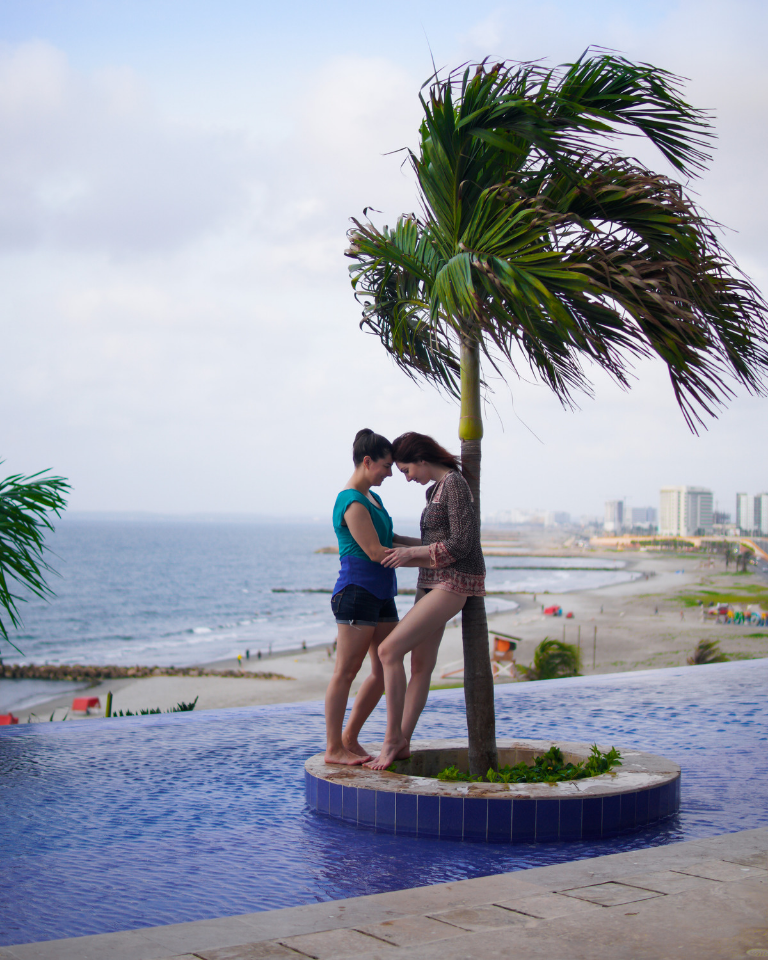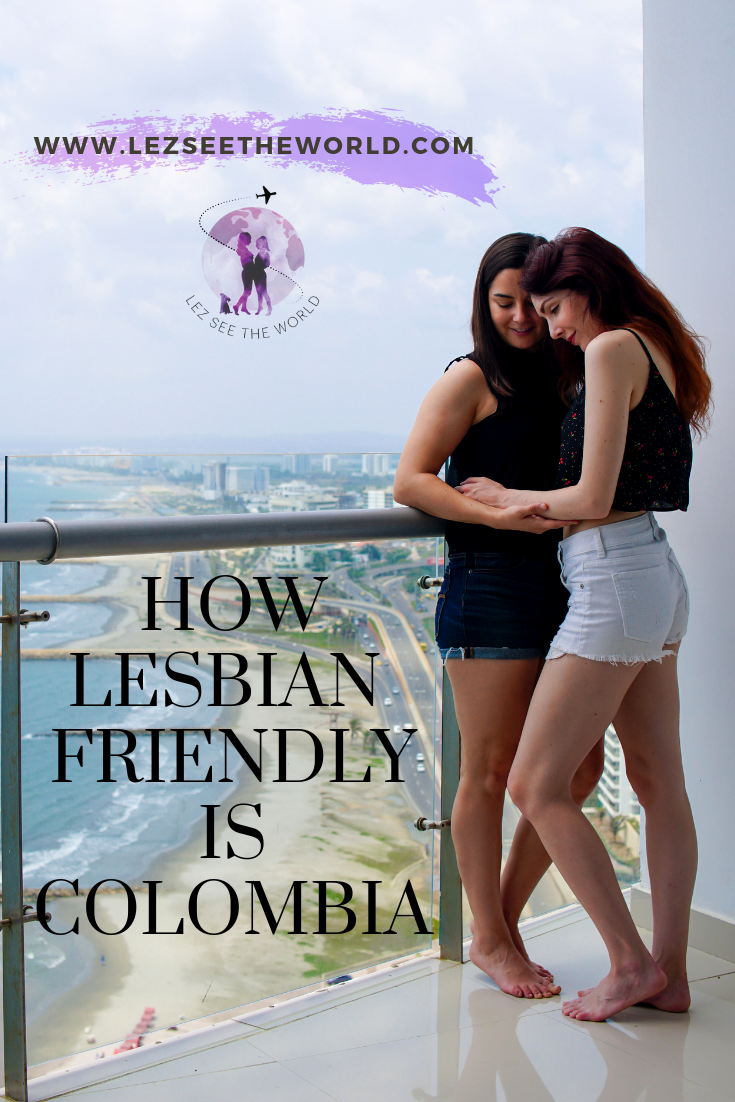What We Want to Know
When we’re travelling to a new destination as a lesbian couple, there are a few things we take into consideration to figure out how lesbian friendly it is. We like to know what the LGBTQ+ laws are in that country, as well as what the social climate is. In some places the laws and the feelings of the local people don’t necessarily match. We also like to know if there are any “gaybourhoods” or areas that are especially lesbian friendly. This blog series is meant to inform other lesbian travellers about different destinations around the world, and help empower them to travel more openly when it is safe to do so. We will be sharing our experiences in each country as well as our recommendations, but as always we encourage everyone to do their own research. We can only speak to our own experiences, and everyone has a different comfort level when it comes to being out and open while travelling. The travel destinations that an LGBTQ+ person chooses, and the way in which they travel is a very personal decision, and we encourage everyone to do what feels right to them.
Keep reading to find out how lesbian friendly Colombia is!
LGBTQ+ Laws
The LGBTQ+ laws in Colombia are some of the best in Latin America, with very progressive legislation for LGBTQ+ rights. Same-sex sexual activity was decriminalized back in 1981, which started a wave of progress over the last several decades. Same-sex couples were first legally recognized back in 2007 when same-sex couples were granted some legal rights, and in 2016 the Constitutional Court legalized same-sex marriage. Same-sex couples are also legally recognized as families, and have equal rights to adoption and IVF. There is discrimination protection in place for members of the LGBTQ+ community, and there has been since 2011. It’s illegal to discriminate against LGBTQ+ people in the workplace, in education, in businesses, and anywhere else. Hate speech against the community is also illegal. Colombia also has a law that allows LGBTQ+ people to safely express affection to their partners in public. The law is protected by a Constitutional Court ruling, and is a national policy put in place to protect the community. Other extraordinary laws in Colombia include no restrictions or deferral period for blood donation, no restrictions for LGBTQ+ people serving in the military, and a “neutral” option on birth certificates when referring to gender. Colombia’s laws are certainly impressive! They’ve made equality and inclusion of the LGBTQ+ community a priority, and we can only hope that other Latin American countries will follow their example.
Social Climate
The public opinion amongst Colombians is still quite conservative in regards to the LGBTQ+ community. Despite very progressive laws and support from Colombian politicians, the general public appears to still be catching up. While there are thriving gaybourhoods in different parts of the country, there are still reports of discrimination and violence against the LGBTQ+ community. Polls show relatively low (but growing) support from the public on issues like same-sex marriage and same-sex adoption, even though they are both legal. That being said, things are moving in the right direction! Former mayors and members of Congress have openly supported the LGBTQ+ rights movement, and there have been openly gay ministers in the government. There is also growing representation in the mainstream media, with television programs featuring more and more gay characters and same-sex couples. There is also a growing number of Colombians coming out as members of the community, which is an excellent indicator that people are feeling more safe to live their lives openly. Colombia can definitely be considered an LGBTQ+ friendly country to visit based on their extremely supportive laws, but it’s always important to keep your personal safety and comfort level in mind.
Gaybourhoods
The biggest LGBTQ+ scenes in Colombia can be found in the cities of Bogota and Medellin. Bogota is the country’s capital, and has a gaybourhood concentrated in the Chapinero area. It’s definitely geared more toward men with plenty of gay bars, clubs, and bath houses, but it also includes the only LGBTQ+ community centre in the country. It was opened in 2006 and offers legal advice and counselling to members of the community. Bogota also hosts a Pride event in June, which includes an annual march and plenty of Pride parties! Medellin is also considered to be a very welcoming city in Colombia. A small gay scene can be found in the Parque Lleras area, with other establishments scattered around the city in the Laureles neighbourhood, and Poblado. Finally, Cartagena (which is where we visited) is a beautiful city and worth considering! Because it is a port city and very popular with tourists, it’s also quite LGBTQ+ friendly. There are a couple of gay bars in the old town and the Getsemani neighbourhood. Overall, Colombia is a country where you can certainly feel welcomed and also experience some local gay culture. Be sure to consider your own comfort level and stay safe while visiting this South American destination!
Our Experience
We visited Colombia together on a trip to South America in 2019, and spent our time in the beautiful city of Cartagena! Cartagena is a popular port city on Colombia’s Caribbean Coast, and is a beautiful beach destination with a historic walled city. We completely fell in love with it! It always feels really nice to travel to a country that legally recognizes our marriage, and Colombia was no exception. When we presented our customs card together upon entering, we were treated kindly and respectfully when we said we were spouses. We felt safe and comfortable being out and open in Cartagena, and had no issues while visiting. We didn’t receive any unwanted attention, and never felt the need to hide our relationship for safety reasons. We had a really lovely visit and spent our time exploring the old town, and soaking up the beautiful beach views. Cartagena is busy with tourists and felt very safe. Colombia is a lovely country and we’re so glad we visited! We would love to return one day and visit the bigger cities like Bogota and Medellin. We can definitely recommend Colombia as a lesbian friendly travel destination for women and couples, and encourage you to do your research so that you can feel safe and comfortable during your visit.
If you’re interested in travelling to Colombia, be sure to read our Lesbian Guide to Cartagena!
Have you been to Colombia? Share your experience in the comments below!
View our library of How Lesbian Friendly Is… articles here!






